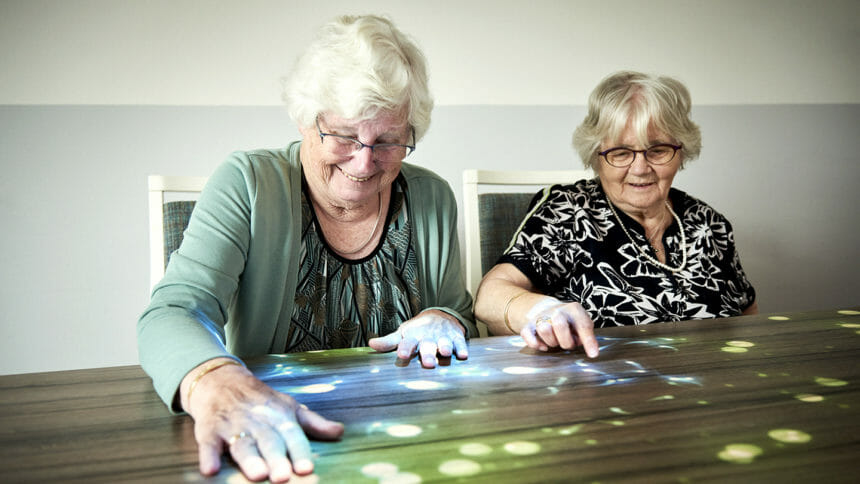
Residents in long-term care did not suffer steeper cognitive declines because of COVID-19-related isolation, countering a fear widely held early in the pandemic, according to a research letter published online in JAMA this week.
The Canadian study reviewed assessments of more than 120,000 nursing home residents in Ontario, where tight isolation protocols restricted visitation for months, sometimes longer, mirroring US conditions.
“We didn’t see during COVID that drastic, catastrophic decline that we had expected or that we have heard anecdotally,” senior researcher Peter Tanuseputro, MD, of the Department of Medicine at the University of Ottawa, told McKnight’s Long-Term Care News Monday. “Isolation, no matter what, has led to distress. That distress undoubtedly had some suffering associated with it. It’s just that we didn’t see cognitive decline specifically associated with that suffering.”
The researchers, representing various medical and research institutes in Canada’s capital, found that the rate of cognitive decline was similar between residents in long-term care homes with and without COVID-19 outbreaks. That suggests “that greater exposure to public health restrictions (e.g., in-room isolation) was not associated with increased decline,” they reported Monday.
Their study seems to validate findings from Dutch researchers, who earlier this summer published a controversial paper in the Journal of Post-Acute and Long-Term Care Medicine claiming that they found “no clinically relevant negative effects” on residents’ mood, behavior, social and cognitive functions. That study, however, examined a far shorter period of isolation— just a few months’s worth — the lead researcher acknowledged to McKnight’s.
In the Canadian study, the team compared the one-year incidence of cognitive decline among two subsets of long-term care residents in Ontario; one group from before COVID began, and one living in homes after its initial start. After one year, 24.6% of patients in the pre-COVID group and 24.3% in the COVID-19 group experienced cognitive decline.
Tanuseputro was quick to acknowledge that his team’s work did not examine mental health status or measure for an increase in conditions such as depression. Nor did it use the most perceptive measurement tools. The team depended on scores from the Cognitive Performance Scale, which has been validated for accuracy against the Mini Mental State Examination.
The Cognitive Performance Scale, used routinely in Canadian settings, however, uses only a range of six categories to indicate function. The MMSE or the MoCa diagnostic tools might have produced more nuanced results, Tanuseputro said.
“I suspect that if we used those sorts of measures, that we might be able to at least detect a decline at the very least in some populations, the people who were most affected by isolation,” he noted. “Part of the reason we might not have seen any change is because we have sort of a blunt instrument to assess cognition. That said, what it does say is there’s no catastrophic decline in cognition. But there might have been smaller changes in cognition that we didn’t pick up.”
Tanuseputro also said that the study may have been self-limiting in that those “prone to and who experienced cognitive decline because of COVID might have been the same people who died, and so we might not have observed that cognitive decline before they died.”
Previous work validates that observation, with US dementia patients dying of COVID at higher rates during the pandemic, according to a JAMA Neurology study.
Though it wasn’t noted in the research letter, Tanuseputro also said the time away from relatives with a terminal illness could have also led loved ones to appear worse than expected when visits resumed.
“People are shocked [at these findings] because they noticed real big declines. And I’ve seen it too. I’m a practicing family doctor, and I see it even in my patients who are in the community,” Tanuseputro said. “Week to week, you might not notice it, but if you see someone three or four months later, you might observe that steep decline. People sometimes don’t think of dementia as a terminal illness, but it quite is. … A lot of these individuals are declining no matter what you do.”




